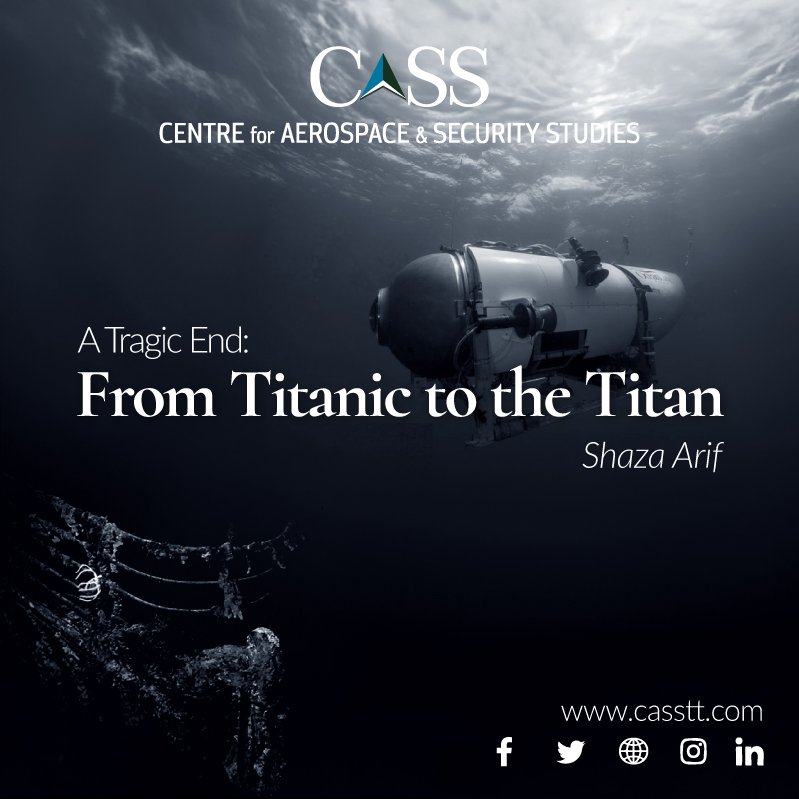The passenger liner ‘Titanic’ sank more than a 100 years ago in 1912 but continues to be an intriguing story for many. Its dreadful end, with more than 1, 500 lives lost, has been captured in various books, movies and plays, with each offering a unique perspective of its loss. The release of the 1958 film ‘A Night to Remember’, based on Walter Lord’s book, presented its detailed and captivating account. The subsequent discovery of the ship’s wreckage in 1985 further fueled public interest. Finally, the Oscar-winning film ‘Titanic’, released some 12 years later in 1997, whose charm continues to resonate today, familiarised a much younger generation with its heartbreaking but short voyage. The artefacts, recovered from the ship’s wreckage in numerous controversial and dangerous expeditions, are preserved in various museums around the world.
Fast forward to 2023, people are still inclined towards visiting the ship’s remnants (protected under the United Nations Educational, Scientific and Cultural Organization Convention on the Protection of the Underwater Cultural Heritage Convention and the UN Law of the Sea) at 12,500 feet (2,100 fathoms) at the cost of a fortune and even at considerable risk to their lives. The recent OceanGate voyage, which resulted in the implosion of the submersible ‘Titan’ with five such adventure-seekers on board, took the world by surprise for two reasons. Firstly, the incident was undeniably heart-wrenching, as five remarkable individuals on board (including a teenager) lost their lives in one of the most devastating ways possible. Secondly, with the rapid pace of technological advancements, such incidents are unexpected, making it all the more shocking. For Pakistanis, in particular, the news was significantly distressing. Not only were two of the victims a Pakistani father-son duo, but also the fact that this devastating news broke shortly after approximately 209 Pakistanis became victims of the ocean waters off Greece’s coast. The latter was the third major incident reported since February in which migrants and refugees from Pakistan lost their lives at sea. The nation mourned the unimaginable pain of the victims’ families of both incidents.
Apart from the fact that the ill-fated ‘Titan’, like the Titanic, met a very unfortunate end, both share another similarity. Hollywood Director and deep-sea explorer James Cameron (behind the movie ‘Titanic’), who himself has visited the wreckage around 33 times, pointed out that similar to the manner in which the warnings of an approaching iceberg were ignored by the Titanic’s captain, concerns regarding the Titan’s safety were not taken seriously by the OceanGate company despite being cautioned several times regarding its faults. In 2018, a group of submersible experts wrote a letter to OceanGate expressing their apprehensions about the submersible’s development. They urged that the submersible needed further certifications before allowing it to take passengers to the ship’s wreckage site. Likewise, in 2019, Karl Stanley, a submersible expert, informed the OceanGate CEO regarding a potential defect in the vessel experienced when Stanley used it for an undersea excursion trip off the Bahamas coast.
The use of carbon fibre composite for the main cylindrical hull was also seen as a faulty choice for the design, given that composites should not be used for vessels subjected to immense external pressure like the Titan. The application of aviation thinking for deep submergence may also have been one of the issues contributing to the implosion.
The tragedy highlights the risks inherent in maritime exploration; and is likely to have a psychological impact and dampen the enthusiasm of young ocean lovers who are usually inclined to undertake adventurous activities in spite of the associated risks.
While the presence of private companies has undoubtedly increased the accessibility of the oceans’ uncharted depths, such commercial expansion is not without its perils. The sinking of the Titan is a reminder that no technology can guarantee absolute safety. It not only raises serious questions about the safety standards, regulations and certifications in place by companies like OceanGate, it also brings to light the need to review existing international certification processes for deep-sea exploration. It emphasises more stringent safety protocols and comprehensive evaluations before such ventures are carried out given that maritime tourism (like space tourism) may become more and more frequent in the future with technological advancements.
In a tragically ironic twist of fate, a century later, the very same location bore witness to yet another harrowing incident, serving as a solemn reminder of the age-old adage: ‘There are no new accidents, only new victims.’ The Transportation Safety Board of Canada and the US Coast Guard are engaged in probing the exact cause of this tragic sinking. As we await their conclusive findings, it is imperative that the concerned stakeholders lend profound weight to these investigative revelations, so as to avert the occurrence of such dreadful events in times to come.
Shaza Arif is a Research Assistant at the Centre for Aerospace & Security Studies (CASS), Islamabad, Pakistan. She can be reached at: cass.thinkers@casstt.com




